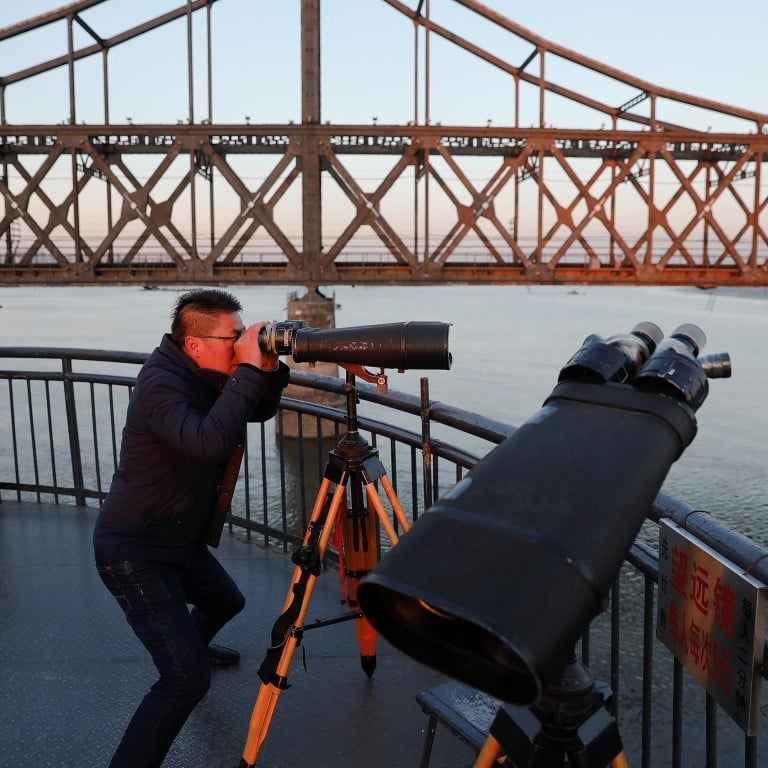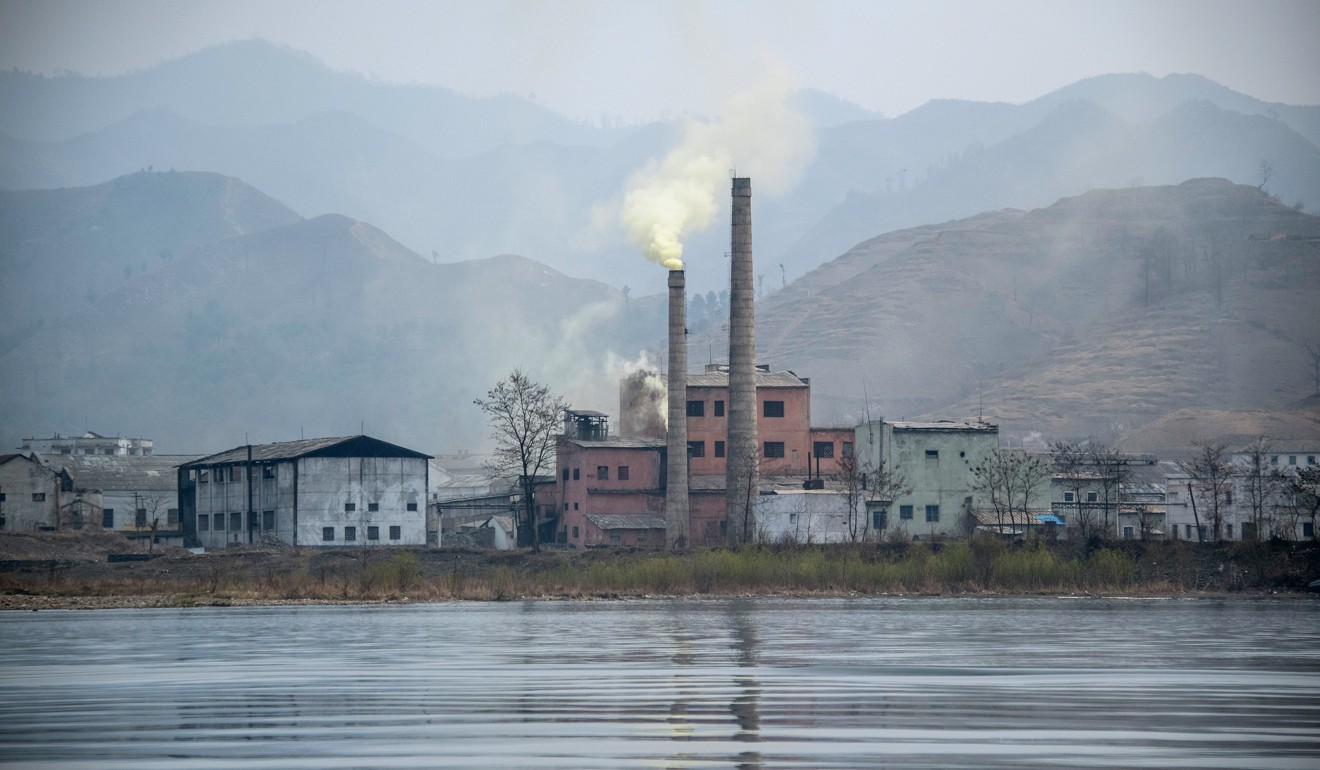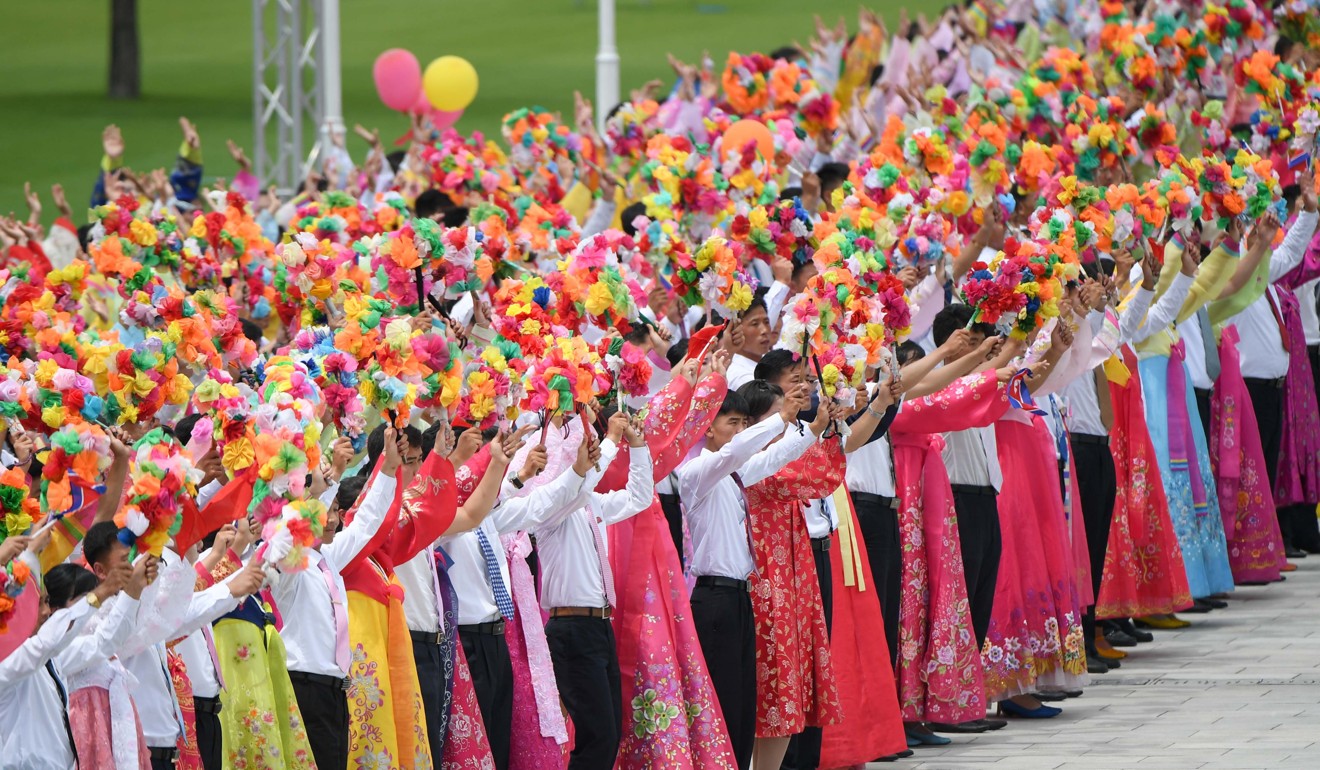
Why is North Korea clamping down on ethnic Chinese over Lunar New Year?
- The hwagyo ethnic Chinese minority have long used the holiday period to return to China to buy goods they resell for a profit in the hermit kingdom
- So why is Pyongyang closing the loophole?
Over the annual holiday period, many members of the small minority travel back to China to visit family and to purchase goods that they can resell in North Korea for a profit. Ethnic Chinese in North Korea, called hwagyo in Korean, have for decades led tenuous lives as an ethnic minority in a decidedly homogeneous country. As such, hwagyo, who are estimated to number anywhere between 4,000 and 10,000, have been banned from North Korea’s ruling Workers’ Party and have limited educational and work opportunities.
But many hwagyo’s relative ease of travel to China – the source of nearly all of North Korea’s external trade – gave them certain advantages, such as being exempt from having to take part in the mandatory political events North Koreans must attend over the holidays, as well as access to goods that are difficult or impossible to get in the North.

That appears to be changing. Radio Free Asia reported recently that North Korean authorities were forcing hwagyo to pay large sums to acquire the documents needed to travel to China, and fining hwagyo who fail to participate in political events, most of which involve paying tribute to North Korea’s ruling dynasty.
An unidentified source in North Korea’s Hamhung Province told RFA, “Hwagyo are now expected to participate in every political event that is mandatory for North Koreans,” adding that authorities now require hwagyo to contribute to the costs of holding those events, such as the purchase of decorative flower wreaths.
North Korean defectors in Vietnam: what took South Korea so long to intervene?
A recent UN report estimated the North Korean economy to have grown 1.8 per cent in 2019, and projected 2.2 per cent growth for this year.

The lean times may be leading North Korean authorities to seek new ways of generating revenue. “In the border areas, it’s about squeezing money from people who are involved in cross-border trade,” Hazel Smith, a professor at the School of Oriental and African Studies, University of London, said of reports of a crackdown on hwagyo.
“Sanctions have made an enormous impact. When the United States and the United Nations implemented comprehensive sanctions in 2017, it meant that North Korea could no longer import oil or oil products, which essentially led to the collapse of agriculture, which was already functioning at a very basic level,” Smith said.
Is North Korea’s new submarine ballistic missile a threat to US?
In an apparent effort to spur growth, the North Korean government has relaxed some controls on commercial activity, amending laws to allow private enterprises to raise funds.
While such measures can be helpful toward Kim’s goal of higher growth, they also clash with the North Korean state’s overriding interest in maintaining control. Kim’s regime may now be seeking to rein in some of the new economic activity in the name of stability. “There has been a noticeable uptick in state media rhetoric about economic regulations,” said Rachel Minyoung Lee, a senior analyst at NK Pro with training in North Korean media propaganda.

“My reading of state media is that the Kim Jong-un regime wants to keep going with the reform-oriented measures, but it feels the need to tighten the noose on the individual economic units in general. The regime likely feels that it has become harder and harder for the cabinet to keep tabs on individual factories, farms, and complexes, given that they have been given greater latitude under Kim Jong-un,” Lee said.
A recent analysis on the North Korean affairs website 38 North also highlighted the possible relationship between low growth and tighter state control: “The risk is that the state will start to roll back more of the autonomy it has granted to actors within the economy, believing central control and guidance to be the only way to make sure that policy is executed properly.”
There are other indications of hwagyo coming under closer scrutiny from North Korean authorities. Late last year, Radio Free Asia reported a case whereby the wife of a hwagyo resident of North Korea was sentenced to hard labour for making “illegal phone calls”, which could have meant communicating by phone with someone in China.

North Korea strictly controls the flow of information into and out of the country with the goal of restricting the population to approved narratives that glorify the country’s rulers. A source told Radio Free Asia that, in the past, hwagyo would have simply been fined for making such phone calls and that the sentence of hard labour was intended as a “strong warning” to the hwagyo community.
“They are losing their dominance in the economic sphere, but that is not a conscious policy choice, it is a natural outcome of others obtaining greater economic clout,” said Christopher Green, a North Korea expert at Universiteit Leiden in the Netherlands, adding that North Korean state-owned enterprises with connections in China had taken over more trading activity.
North Koreans in Japan rally against Shinzo Abe’s move to axe school funding
Hwagyo are “a reliable source of the kind of products and information that the North Korean government goes to great lengths to stop its citizens from obtaining,” Daniel Tudor and James Pearson write in “North Korea Confidential”, adding that hwagyo “bring in DVDs of South Korean, American, and Chinese movies and drama serials; Chinese mobile phones; and, freely tunable radio sets and televisions.”
Koo Ja-ryong, a China-focused columnist for South Korea’s Dong-a newspaper, argues that the declining fortunes of hwagyo indicate generally worsening conditions in North Korea, writing, “Doesn’t the fact that hwagyo are leaving mean that hope and opportunities are leaving North Korea?”

